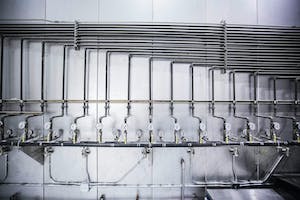What Do Plumbers Do
by siteadmin

Plumbers install and repair pipes that transport waste, chemicals, and water between homes and offices. In addition to installing pipes, plumbers can also install fixtures like toilets and baths, or appliances like dishwashers.
Plumbers are typically trained for years before they become certified. They learn to read blueprints, understand building codes, and communicate with other trades.
Installation
Plumbers install pipes in homes and businesses to remove waste water, gas, and water. They also install fixtures such as sinks, bathtubs and toilets. Some plumbers are specialists in commercial or industrial pipe networks.
Before installing a plumbing system, plumbers need to ensure that all pipes are accessible. This could mean moving furniture, covering walls, or clearing debris. A whole house repipe may take several days. All water service is shut off during this time.
While the conditions of each job are different, all plumbers face the same risks. Plumbing services can be dangerous due to exposure to hazardous chemical substances and heavy lifting.
Repair
Plumbers repair pipes, drains, and fixtures with a variety tools. They inspect systems and determine what the best solution is. For example, they might have to clean drains, remove clogs or replace damaged parts depending on the severity of an issue.
Leaky pipes are a common plumbing problem. While homeowners can try to patch leaks using sleeves or at-home solutions to prevent further damages, plumbers are usually needed to replace the entire pipe to avoid further damage. They will also provide assistance with any other water line problems such as bad taste or smell water or installing softeners.
Plumbers can also be hired to fix the main waterline that connects to your house underground. This task is more difficult and requires more expertise, as it involves dealing with live pipes as well as potentially hazardous environments such as sewer or Septic Tank outlets.
Maintenance
Routine plumbing maintenance ensures that pipes are safe, operating as intended. Specialists in this field use hand-tools, power tools and testing equipment to inspect, repair and maintain gas and water lines, as well as fixtures, such as sinks or bathtubs, toilets, and dishwashers. They interpret blueprints, building codes and other documents to determine the best pipe placement. They also work closely with architects to integrate plumbing into new projects.
Plumbing emergencies can occur at any time, and plumbers may be called by both homeowners and business owners. They are often under tight deadlines. Their job demands quick diagnosis and repairs to quickly address problems. This includes finding leak sources or adjusting pipe pressure, or clearing blockages. It is often necessary to work in tight spaces, which requires protective gear like hard hats.
Customer Service
Plumbers offer customer service by installing and inspecting pipes that bring water to homes and businesses or transport waste away. Plumbing fixtures, such as sinks, bathtubs, toilets, and appliances, such as washing machines and dishwashers, may also be installed. They can also train apprentices and helpers to install these systems, while clearing obstructions in pipes, disposing waste appropriately, and informing customers on costs/processes of repairs.
Plumbers earn well above average salaries in the construction industry. Many join labor unions and negotiate wages and benefits for themselves. To become a professional plumber, you will need to complete a program at a trade or vocational school, and meet any licensing requirements. Those who are looking to advance should pursue additional certifications or managerial opportunities as soon as they can.
water heater installation boise
water softener installation boise
Plumbers install and repair pipes that transport waste, chemicals, and water between homes and offices. In addition to installing pipes, plumbers can also install fixtures like toilets and baths, or appliances like dishwashers. Plumbers are typically trained for years before they become certified. They learn to read blueprints, understand building codes, and communicate with other…
